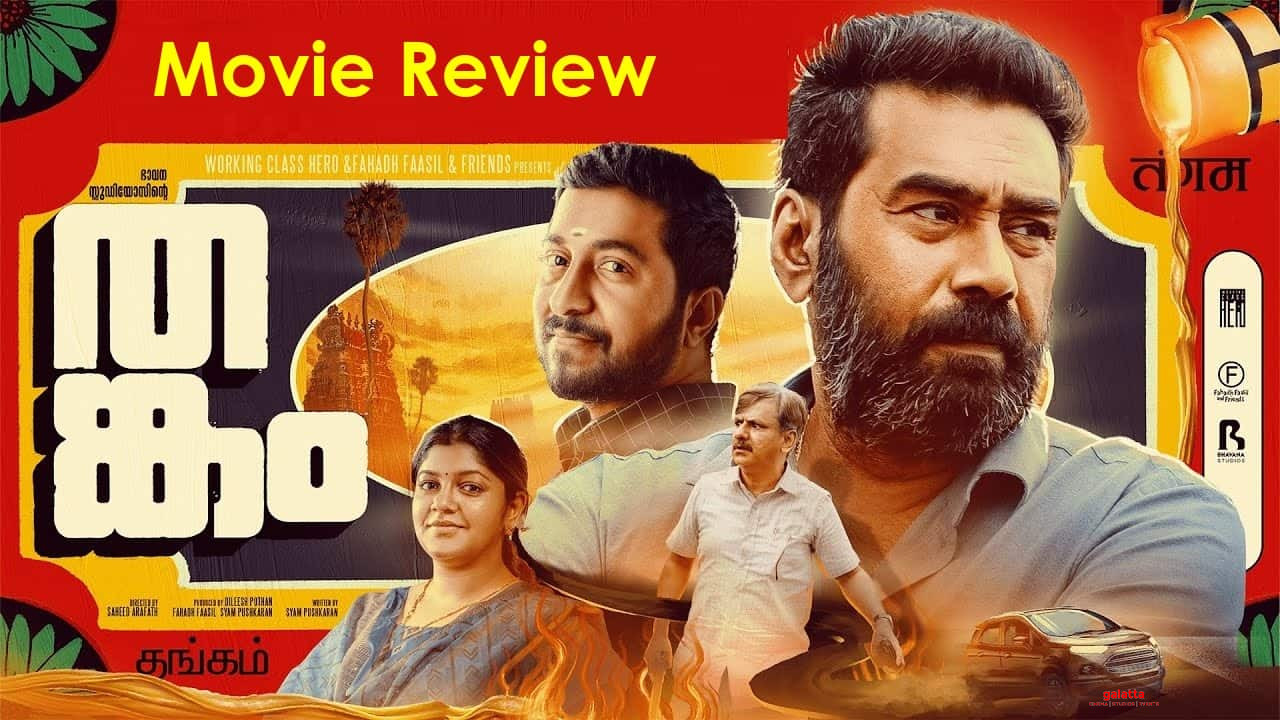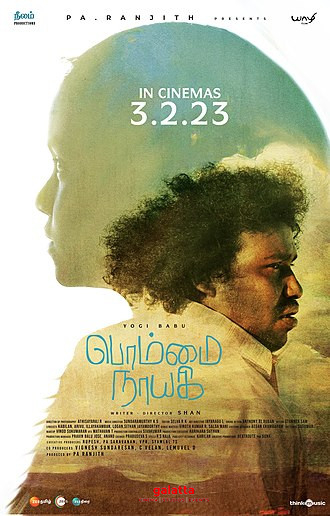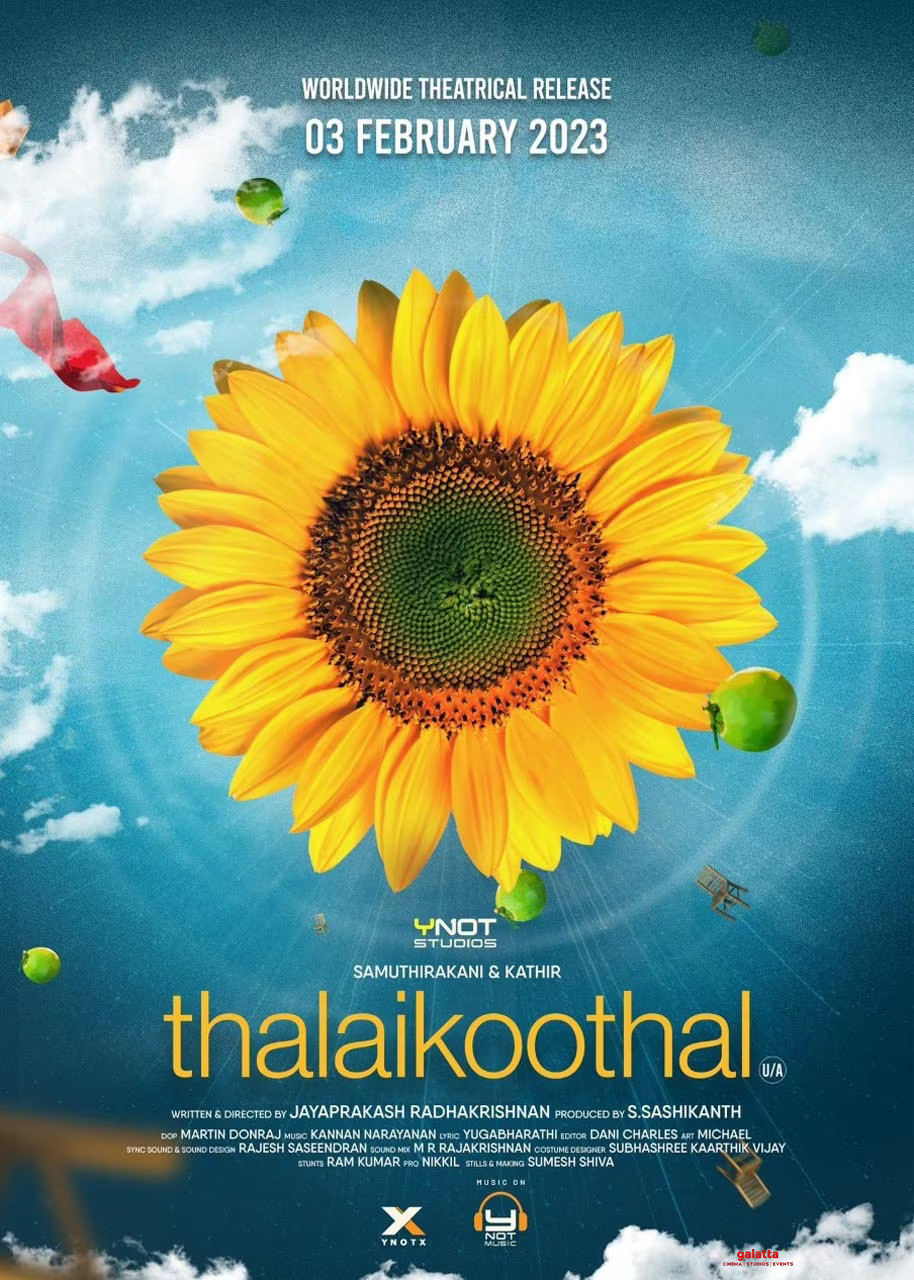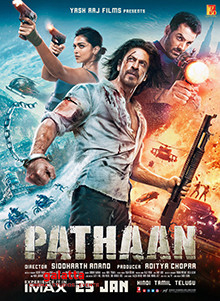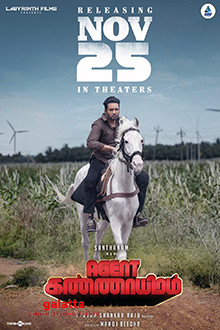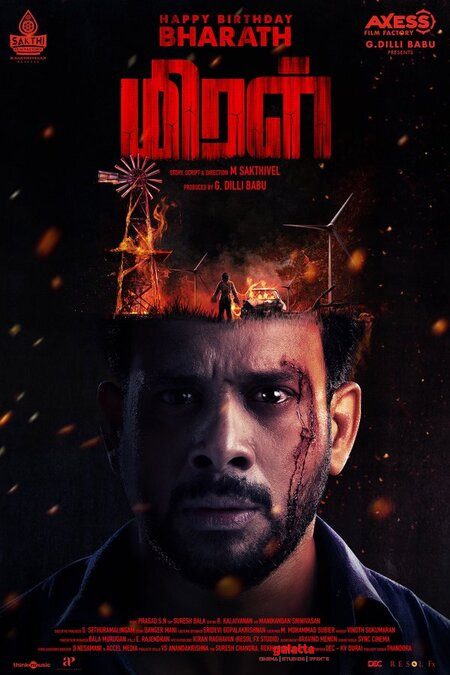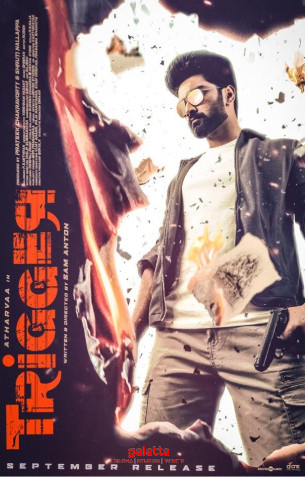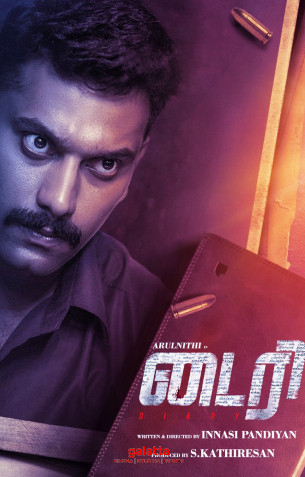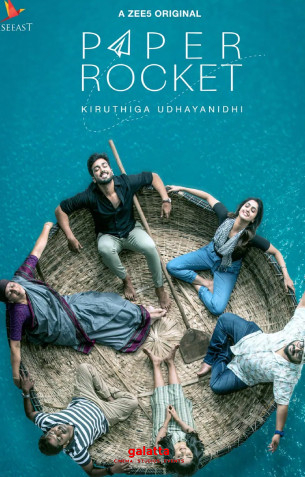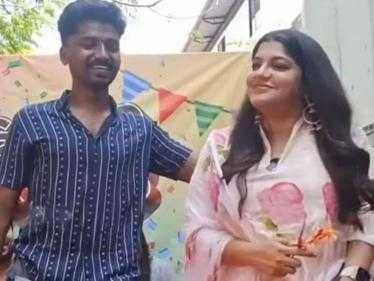Thankam Movie Cast & Crew
The opening visual and the opening stretch of Saheed Arafath's Thankam tell two different stories. The visual is that of loneliness: we see a man facing the sea, his back to us. There's a whiff of melancholy about the image, something we sense even though it's just a few frames. And then, we cut – suddenly and dramatically – to this same man in the midst of the opposite of loneliness. He is in the midst of bustling crowds, in the midst of the gold business of Thrissur. His name is Kannan (Vineeth Sreenivasan), and he sells the gold jewellery made by his friend Muthu (Biju Menon). The opening credits appear over a song that's a dedication to Dhanalakshmi, the goddess of wealth, but note the sign outside Muthu's workshop: the name of his "company" is hand-written on a sad piece of cardboard. The business may deal with one of the most precious of metals, but it's clear that people like Kannan and Muthu are not exactly millionaires. Hence that opening visual of Kannan staring at the sea: it's a hint of a state of mind, a hint of things to come.
But in Syam Pushkaran's very clever and very deceptive screenplay, these things don't come at you the way you expect them to. We first get a glimpse of the relationship between Muthu and Kannan, who are family friends. Aparna Balamurali plays Kannan's wife, but like in most of Syam's writing, she exists in a corner of the film. I liked that she does not dissolve easily into tears, which tells us that circumstances that are not spelt out in the narrative have hardened her. The most important female player in the film is Ambika Chechi (Indira Prasad), who's a heavyweight in the gold trade. We may not see much of her, but her presence looms large when says things like: Once I cut off a relationship, it stays cut. She does not trust Kannan, so it's up to Muthu to make deals with her, while pretending to badmouth his friend. One such dealing tells us about all three corners of this triangle: about Muthu and Kannan, about Muthu and Chechi, and about Kannan and Chechi.
People are coloured by the oddest and most interesting traits. Muthu is a family man, but he likes whoring around. The film does not judge him, just like it does not judge Kannan for being a devout Hindu while doing borderline-shady things that we are taught "god will punish you for". (This devout Hindu also touches a crucifix pendant for luck. His belief is not limited by his religion.) In an exquisite scene, after Kannan bribes a cop with a gold chain, the cop snaps off the Dhanalakshmi pendant and returns it to Kannan. It's not something peculiar to the gold business. Even if we do bad things, we don't want to piss off the gods. That's something ingrained in many Indians, and this pendant gets a superb narrative arc of its own. The story is very contained, very intimate and personal. It could have taken place within any sprawling industry, but the risks and big monies involved with the gold trade raise the stakes. So there's more drama in the mix of the internal and the external.
What's internal, I will tell you later: for now, let's just say it involves Muthu and Kannan. But the external aspects of the story play out through two stretches involving the police. The shorter stretch is when Kannan is arrested, and the longer stretch is when Kannan goes missing in Mumbai. Both aspects of the screenplay have an aftermath. In the first stretch, we learn things that will put the ending in context: in other words, even though these are very "external" scenes involving interrogations and so forth, you keep getting details that will dovetail into the second stretch with the police and also tell us a lot about the "internals" of the characters. For instance, just look at how Muthu expresses his concern for Kannan at the police station. He simply stands still, but his face betrays all the emotion he's experiencing at this point. It's the exact same thing in a later scene at a morgue. The big-built Biju Menon's very "masculine" stoicism plays off beautifully against the smaller-built Vineeth's more "feminine" openness. He makes you want to give him a big hug and say things will be okay.
The third brilliant performance in Thankam comes via Girish Kulkarni, who plays a Mumbai cop investigating a Mallu case in Tamil Nadu. (His words, not mine). Biju gives an internalised performance because that's who Muthu is. Vineeth gives a semi-internalised performance because Kannan is revealed to us gradually, in layers: like in the scene where he shouts at Muthu and instantly apologises when he realises how much his outburst has hurt his friend. As if to compensate, Girish explodes like a grenade. Muthu may get the film's biggest "mass moment" when he apprehends a suspect in a movie theatre, but Vijay Sakhalkar – that's the Girish Kulkarni character – gets mini-mass moments all through, especially when he tackles a stubborn and uncooperative senior cop. This constant mix of the internal and the external sets Thankam apart from a pure procedural like Rajeev Ravi's excellent Kuttavum Shikshayum. Like with gold sometimes, the procedural track here contains "impurities".
In fact, the whole procedural is a kind of deception -- almost like the deception at the heart of the story. When the rug is pulled out from under our feet at the end, when we learn that this is really a "friendship story" and the procedural is a a bit of a red herring, I sat there stunned, overwhelmed by emotion. You think you know people, and then you discover they come with their own "impurities". This is the big internal payoff. Relationships are complicated, and the innocents get easily deceived. No one is painted in simplistic shades. A small subplot about a man having an affair turns out to the advantage of the police, and we also get the small and unexpected detail that this man's supposedly "Tamil" wife knows Hindi. Another investigative stretch results in a bit of family comedy when a girl casually reveals that she has a boyfriend. This boyfriend's shirts are as colourful as his language and his character.
Thankam is a terrific return to form for Syam Pushkaran, whose Joji left me somewhat cold. It was too tight, too composed. Thankam is looser, and allows a lot more space for character details as well as details about the business world the story is set in. If you are an emotional fool, like I am, you will carry home the film's closing image – which complements the opening image of the man staring at the sea. The finality of the speech that accompanies the close-up of the face, the fact that this facet was hidden all along, the truth that we can never really know people – this is all utterly devastating. The more practical people among the audience may say: If you have a problem, why not simply share it with someone? But everyone's different, and that's why human beings are so fascinating to put under a microscope. Like the gold jewellery Muthu makes, we are all filled with "impurities".
